Stop using snuff
Do you feel that it is starting to feel a bit like a waste and unnecessary to go buy snuff every day? Have you started to think about what you can do to improve your health? Are you tired of being addicted? These are positive thoughts. This means that you have sown the seed to stop using snuff. Taking the step to stop using snuff is among the best things that you can do for your body. As you know, tobacco is harmful and nothing that you need or feel good from using.
With a strong will, smart strategies and perseverance you can quit using snuff. Here you can read about some good things to keep in mind, what happens to your body when you quit using snuff and some handy tips that will facilitate your journey towards a nicotine-free life.
👍
Stop using snuff – a smart decision for better health
Why should I stop using snuff?
Using snuff is often viewed as a healthier alternative to smoking and sure there is something about that which is true. Many studies show that the effects of snuff on the body are less negative than those from smoking. But you can hardly maintain that using snuff is a healthy thing to do. When you place the portion of snuff under your lip you ingest nicotine, poisons and substances that can actually harm your body.
Quitting snuff has many health benefits, you will have a fresher mouth and you save quite a lot of money. Money that can be spent doing things that are much more fun and much nicer than tobacco! 👌
9 smart quitting snuff tips that will help you become tobacco-free
There are many ways to quit using snuff and different methods work for different people. For some it is sheer willpower that works, quitting nicotine completely and then getting through the tough period that follows. For others a gradual decrease works best. Most need some form of support in order to succeed. Below we will go through 9 good tips that will help you become tobacco-free.
1. Set a date to quit using snuff!
The more planning and preparation you have when you want to quit snuff, the more likely it is that you will be successful. Just going cold turkey can be difficult and the resulting problems often become overwhelming if you have not prepared yourself mentally. Decide on a date several weeks in advance when you want to be fully snuff-free and use the time to say goodbye to the snuff.
2. Exercise!
Snuff user or not – getting moving and physical exercise are always a cornerstone for good health. When you find it difficult not to use snuff, exercise can be very good. It helps you to clear your mind and releases happiness hormones in your brain. This can be much needed during a period of temptation.
3. A good diet
A balanced and healthy diet keeps your blood sugar even and your mood stable. It helps you when you try to completely stop using snuff.
Tip: Simulate the portion of snuff! When you quit snuff it may feel strange that there’s nothing under your lip. Try using sugar-free chewing gum or something else that can simulate the feeling of having snuff in your mouth.
Remember to eat regularly: breakfast, lunch, dinner and preferably some snacks. This gives you balance and even blood sugar levels, which will help you to stay strong and reduce the snuff cravings. Drink water for a stable fluid balance and you will feel more alert and resistant.
4. Map out your snuff use
Using snuff is a habit and if you are a major snuff user then it is likely you don’t even reflect about when, how and why you take a portion of snuff.
Actually writing down a few lines about your snuff behaviour can be very helpful and give you a clear overview about what drives your dependency. Perhaps you will find that quite a lot of your snuff is consumed although you don’t crave it.
Lessons about your behavioural patterns can be invaluable for those who have decided to stop using snuff. Having increased awareness is a large step forward on your journey.
5. Get rid of your stash and don’t have snuff in the house
Once the day you have decided to stop using snuff has arrived you should ensure that you do not have any snuff available. The problem with letting snuff be is different for everyone but many think that it is very difficult, especially during the first few days. Having snuff within your reach increases the risk of you starting to use it again. Remember that the snuff craving is temporary, if you manage to hold out then you will see that it soon subsides!
Extra tip: Some find that having an empty snuff box helps because it counteracts the feeling of wanting to go and buy a new one.
6. Get help from others
Everything that is difficult becomes easier if you receive support. To get through the period with abstinence problems and snuff cravings once you have quit, it is important to have encouragement and motivation. Do you have anyone close who can support you when things get tough? Talk with this person and vent your thoughts and feelings with them. Talking about your thoughts with someone else during difficult times can often be a good way of getting invaluable help.
7. Distract yourself with activities
Much of the snuff craving is mental, the habit of taking a portion of snuff is extremely strong and can remain although you no longer have the physical craving for nicotine. Therefore, you can try to get your brain to change thoughts when you begin longing for some snuff.
Much of the snuff craving is mental, the habit of taking a portion of snuff is extremely strong and can remain although you no longer have the physical craving for nicotine. Therefore, you can try to get your brain to change thoughts when you begin longing for some snuff. 👌
8. Avoid triggers
Are there certain situations, places or activities that you very much associate with using snuff? Things are different for every snuff user but there are probably times when you feel extra cravings because you associate that situation with using snuff. Try to gain an understanding of what these might be and see whether you can avoid them during the period when you are trying to kick the habit.
Having someone offer you snuff can also cause problems with your motivation. Think about a smart answer that you can have ready if someone offers you a portion of snuff and you won’t have to think about an answer or be unsure. 😎
9. Celebrate yourself!
Have you gotten through an hour without snuff? Great! Have you gotten through an day? Fantastic! Breaking nicotine dependency is difficult and each time you succeed in resisting snuff cravings you are a hero! And heroes deserve to be celebrated! Reward yourself with something you like when you have made progress. Take a warm bath, treat yourself to something good or do something that makes you happy. You are worth it!
Do you need more encouragement to quit? Read more about the advantages of quitting snuff.
Quitting snuff – benefits to your health
Quitting snuff isn’t easy but it is a challenge that really pays off. Being free from snuff dependency entails numerous advantages, including fewer health risks, a fresher mouth and teeth and you save quite a lot of money. Once you have come out the other side as snuff-free then you will probably ask yourself why you even starting using snuff at all!
There are many advantages associated with quitting snuff
Health benefits from quitting snuff
Snuff is a tobacco product and just like other tobacco products, snuff contains hazardous substances that negatively impact your health.
Studies show that snuff:
- Affects the inner walls of the blood vessels, which can lead to negative cardiovascular health.
- Increases the risk of dying if you suffer a stroke, compared with persons who do not use snuff.
- Increases the risk of type 2 diabetes. One can of snuff a day, or more, doubles the risk.
A nicer smile, fresher breath and a healthier mouth
A portion of snuff under the lip is a toxic, foreign object in your mouth that naturally affects your oral health. Those who use snuff for a long time may notice:
- Their gums recede
- Exposed tooth necks
This makes it easier for bacteria to collect in the space between the teeth and the gums, which in turn, increases the risk of:
- Gum inflammation
- Tooth loss
Also keep in mind that tobacco products discolour the teeth. A heavy snuff user’s teeth are often yellow or greyish in colour.
If you quit using snuff, then you also have one more advantage besides those associated with health: You will get back a whiter and more natural smile. It is more aesthetically pleasing but it can also give you back your self-confidence. Many who have discoloured teeth feel uncertain about smiling and don’t want to show their teeth to others. Being able to get back a smile can do wonders for a person’s self-confidence.
If you use snuff your breath is often unpleasant. This is because the snuff irritates the mucous membranes on the inside of the lip. The mucous membranes become hardened and ridges, which in turn allows bacteria to more easily collect there. The bacteria causes your breath to become significantly worse, which may be problematic to your surroundings. If you stop using snuff your mucous membranes will recover after a while, you will have a better bacteria balance in your mouth and your breath will become fresh again.
Save money – benefits of quitting snuff
Tobacco dependency is not just harmful to your health. It also affects your personal finances. Getting an overview of your actual costs for snuff can be an eye opener. Quite soon you will see that you are spending quite a lot of money on snuff during the course of one year. And for what, actually? Think about all of the other fun, healthy and inspirational things you could do with that money!
If you use one can of snuff per day, then the cost is (approximately):
- SEK 40 per day
- SEK 1,200 per month
- SEK 14,400 per year
What can you spend SEK 14,000 on? Of course there are plenty of good things that can also serve as motivation, some include:
- lso serve as motivation, some include:
- Travel
- Good food
- Clothes
- Entertainment
- Experiences
Or something else you have wanted to do for a long time but haven’t felt you can afford!
Quit using snuff and see more of the world
Even though it is harmful to our health, snuff is a tradition and a natural element for us here in Sweden. But this isn’t so in the rest of the world. If you are going on a long haul trip abroad, then snuff is automatically a problematic dimension. The chances of you getting hold of snuff abroad are very small. How much can you actually take with you? Some countries have clear rules for the amount of snuff you are allowed to bring over the border. In most cases bringing in snuff for personal use is permitted, but in the USA and Australia it can be a bit more difficult.
Australia has very tough customs rules and you are only allowed to take 25 grams of snuff with you to the country. Everything above that weight has costs associated with it. In USA, the rules are unclear and there is the risk that customs will not accept snuff in your luggage.
Today there are also two countries where it is stringently forbidden to take snuff along:
- Island
- Singapore
Using snuff can be viewed as a bit of a limiting factor. Needing to think about and worry about having enough snuff with you, getting hold of snuff or even breaking the law by using snuff, all of these things create stress on your travels and can mean that you are unable to fully enjoy your holiday. If you break your snuff dependency you will also not have to deal with the stress and worry when you want to get out and see the world. Plus, if you become snuff free you will also have the money to go on a lovely trip!
Do you need tips to quit snuff? We have listed the most fundamental tips here!
More news
Quitting snuff abstinence – this is how to handle the problem
Putting snuff on the shelves means taking a major step towards a healthier life. But it isn’t a very simple step to take. There is a tough period with abstinence problems standing between you and a nicotine-free life. Unfortunately, there is no easy way around it. The problems with abstinence are difficult and taxing but they can be managed and overcome. With smart techniques, a healthy way of thinking and a pinch of will you can quit snuff. Your body and your mind will thank you for your effort!
Abstinence problems from quitting snuff
How long does the abstinence last once you quit snuff?
How long you will have to fight against abstinence problems is different for different people. Above all, it is related to how much and how often you usually use snuff. The more you use snuff, the greater likelihood there is that you will experience difficult problems with abstinence once you quit. At the same time, it is important to remember that problems with abstinence are temporary and will pass, they are a challenge but they have an end!
The first week after you quit using snuff is normally the most difficult and the period where the nicotine craving is the greatest. It isn’t strange, your body has build up a dependence over a long period of time and when the dependence suddenly is no longer satisfied then the body starts protesting.
Normal abstinence problems can be:
- A strong nicotine craving
- Irritation, anger or frustration, depression. It’s common to have mood swings
- Headache
- Nausea
- Dizziness – a side effect of your blood pressure dropping from having been too high due to nicotine use
- Tiredness
- Craving for sweets and hunger
Which and how intensive the abstinence problems are largely depends on how great the nicotine dependence is. For some it is very trying, but others only experience mild problems. For the person who is experiencing strong discomfort from nicotine abstinence it can be difficult to maintain the motivation: It is worth it if I feel this bad?
The answer to the question is yes, quitting a nicotine dependence is a lovely gift to give yourself because it improves your health and your mood. When you choose to stop using snuff you also skip the hazardous substances that are found in tobacco.
Things to keep in mind when you want to get rid of your dependence
Problems with abstinence can feel different and vary in degree from person to person. It is largely related to how strong a person’s dependence is and how much and how long you have used snuff for. But most people who reduce the amount of snuff or quit completely feel some form of abstinence and for many it is a very difficult time. Abstinence frequently leads to a relapse.
When you go through abstinence problems there are a number of good things to think about:
- The problems are temporary. Even though it feels super difficult, try to remember that it is a period that will pass. Just like the body once got used to having nicotine, it will get used to not having it. Stay strong – it will get better!
- You can alleviate the symptoms. Exercise is a good way to dampen the craving for snuff and to boost the motivation. Relaxation exercises are another. A balanced and nutritious diet are a third. The most important thing is to find something that suits you specifically.
- Learn from others’ experiences. Former snuff users in your surroundings possess invaluable knowledge and have great understanding for your situation. Think about them in tips and motivation!
Quit snus – abstinence day by day
There is physical abstinence and mental abstinence problems. Which is worst can vary from time to time and from person to person. However, both can be challenging.
- The first day
The first day and during the first days of quitting snuff the abstinence problems are often very troublesome. Nicotine cravings are at their top as you no longer receive the dose the body is used to. You likely feel the abstinence physically with dizziness, nausea, tiredness, etc.
- The third day
Here many people find that the nicotine craving is the worst. If you can hold out through this peak of abstinence problems then it will get easier in a few days.
- One month after quitting snuff
The body has actually gotten used to being without nicotine, but there can still be a craving for snuff from time to time, although at longer intervals.
The more time that passes, the easier it will feel and a life without tobacco becomes the new normal.
Triggers and special situations
For many who have had a long-term snuff addition it is about much more than the nicotine dose in the portion of snuff that contributes to the dependency. There are many mental aspects that weigh into a dependency. This may include special situations, occasions and daily rituals that you associate with snuff, which actually have nothing to do with the physical nicotine craving.
Perhaps it is snuff with your morning coffee? A portion of snuff after lunch? Snuff to get through certain elements of your job? Most who use snuff have their “must have portion of snuff” things. Even though you have gotten rid of the physical nicotine craving then it can still be triggered by these situations.
Try to avoid places and habits that you associate with snuff as much as you can, or try replacing the snuff with something healthy. Eat a piece of fruit instead of a portion of snuff or why not try nicotine-free snuff. Another good habit is taking a walk instead of taking a portion of snuff after a meal. What is good with habits is that it is actually possible to create new and healthier habits!
Smart tips make it easier for you to get through the problems
With a clear strategy it will become easier to handle the abstinence problems and remain snuff-free.
- List your reasons for becoming snuff-free
What is it that makes you want to quit snuff? Is it for your health? Would you like to save money? No matter what your motive is, it can be good to put them into a list. If you are facing a particularly difficult period with abstinence problems, then a list of advantages can actually be a motivation booster and help you to remain on track.
- Celebrate your successes
Each day you succeed in being free from nicotine is a major win that deserves to be celebrated. Give yourself a reward for each major step you take, find something you think is fun or treat yourself to something good. You are amazing and deserve to be celebrated!
- Have good people to lean on
Find key persons in your surrounds who can be a sounding board and provide moral support on your journey towards a nicotine-free life. Friends and family should be understanding of your battle and give you support along the way to quitting snuff. Also get help from any former snuff users who you know. They know what you are dealing with and in the best case they can share their experiences and tricks. Sometimes having support can be decisive to you remaining free from snuff.
More news
Side effects of quitting snuff
Quitting snuff and becoming nicotine-free is understandably a huge benefit to your health. But the process of quitting the habit can be difficult. Problems with abstinence often begin soon after you have taken your last portion of snuff and many difficult symptoms can plague your existence. What happens in the body when you stop using snuff? Well, your body begins adapting itself to a life without nicotine and it can be a stressful process, especially for those who have been using a lot of snuff for a long time.
6 common side effects of quitting snuff
1. Quit snuff – sleep and lack of energy
A common side effect of quitting snuff is poor sleep. This can depend on a troublesome nicotine craving or that the body goes through a sort of crisis when it no longer receives nicotine. With poor sleep comes drowsiness. Many find that the problem decreases over time, while others find that they experience extreme tiredness for a period of time.
Good sleep is an important factor for your wellbeing. Things that can help your sleep when you quit nicotine are:
- Exercise
- Relaxation exercises
- Having the right temperature in the bedroom
- A bed that is adapted to your body type
- Good fluid balance
Fatigue and disturbed sleep are, in most cases, temporary and primarily affect you during the first days. Once your body has become accustomed to being without nicotine a healthier sleep pattern will likely return.
2. Anxiety and depression
The nicotine in the snuff stimulates the brain and releases reward hormones, such as dopamine. This is why you can often experience a strong craving for snuff. When the kick is no longer there you can experience feelings of depression and, in some cases, anxiety can occur. Fortunately there are plenty of things you can do to elevate your mood:
- Exercise, physical exercise is a well-documented method for boosting feeling of happiness
- A balanced diet with plenty of fatty fish, vegetables and pulses. Substances in healthy food promote both physical and emotional health
- Spend time with loved ones. Spending time with and being around people you like releases feel good hormones
Even though it is rare, snuff users can become depressed when they quit. This often occurs solely in the transition period, but if the depression becomes long-term and deep, then seek help. Depression can be serious and you have everything to gain from treating it as quickly as possible.
3. Dizziness
Dizziness is a common side effect when quitting snuff. This depends on the blood flow in the vessel increasing when you no longer supply the body with nicotine, at the same time as the blood pressure and pulse drop. Feeling dizzy can be very uncomfortable but it is manageable:
- Take deep breaths and sit down on a chair until the dizziness subsides
- Drink water
- Continuous exercise
4. Weight gain
Quitting snuff is like giving your overall health a big thumbs up, but unfortunately a thumbs down when it comes to the extra kilos you often gain. It is common that those who quit smoking or using snuff notice weight gain when they completely quit using nicotine. This can be due to:
- The metabolism decreases, which means that calories are not burned as quickly
- The habit of having something in your mouth is strong. Many replace the portion of snuff with food or sweets to dampen the craving
- In many cases you can notice an increased appetite when you quit using snuff, you quite simply eat more than you usually do
Is it possible to stop using snuff but not gain weight? Yes, but be sure to get some exercise, simple daily exercise such as walks and cycling counts! Also try to be aware of what you eat. Fruit can dampen the cravings for sweet things just as well as biscuits and cakes!
It is also worth remembering that a few extra kilos aren’t the end of the world. It is a small price to pay for quitting snuff. Don’t be too hard on yourself during the process, you are doing a fantastic job!
Tip! There are many things you can use to simulate the feeling of a portion of snuff. Try sugar-free chewing gum or a throat lozenge beneath the lip! Tobacco and nicotine-free snuff can also work as a substitute.
5. Problems with the stomach
Bloating, constipation, upset or bad stomach and nausea can be unfortunate elements when you try to quit your addiction. Using snuff may have been part of your routine for getting your system going and without it your stomach may be a bit slow.
Fortunately there are several smart ways to get your stomach up and running again. Prunes are a classic and fibre is too. Remember to drink plenty of water and get exercise as it will make the intestines get up and running again. Stomach problems are often temporary and will pass, so once your body has gotten used to it, then your stomach will also find a normal rhythm again.
6. Headache
One of the most common quitting snuff side effects is a throbbing headache. It can be super troublesome and make it difficult to work and concentrate. Fortunately, headaches can be combatted in several good ways.
- Fluids. Drink a lot of water!
- Massage – relaxed muscles in the shoulders and neck can help relieve the headache
- Sleep – a rested body and brain are not as likely to suffer from a headache
In most cases, the headache is temporary and disappears by itself after a while.
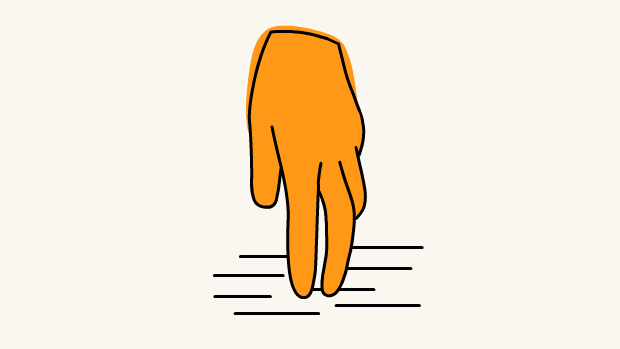
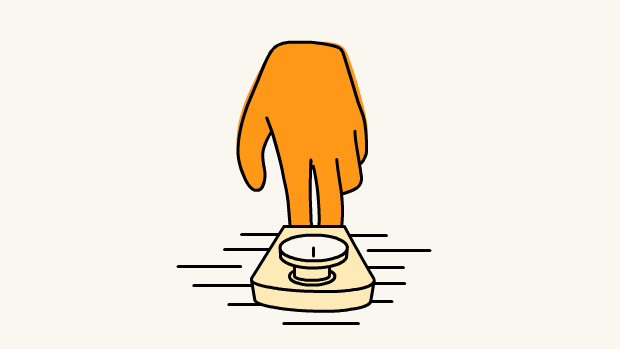
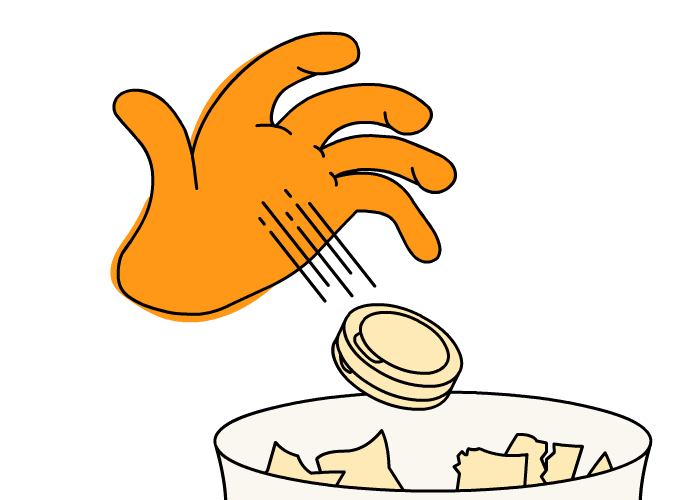
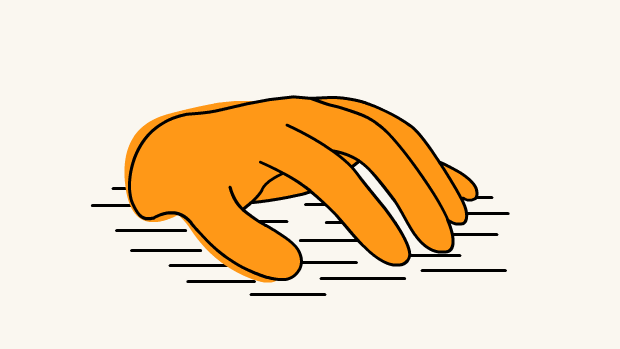

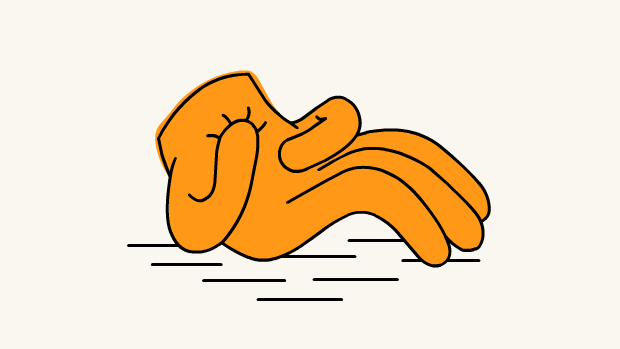
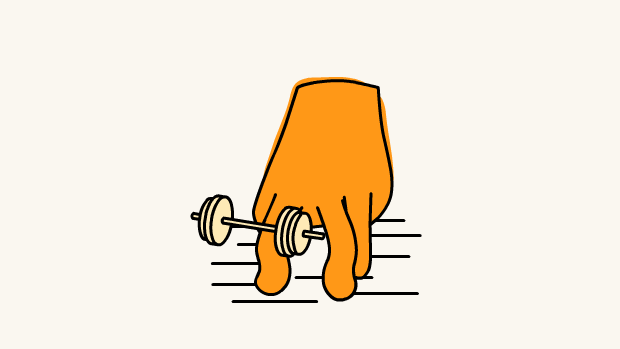
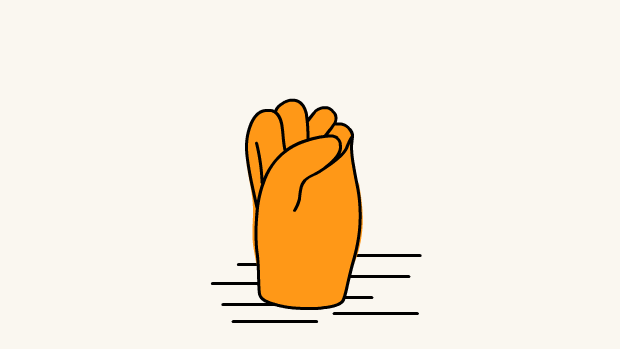
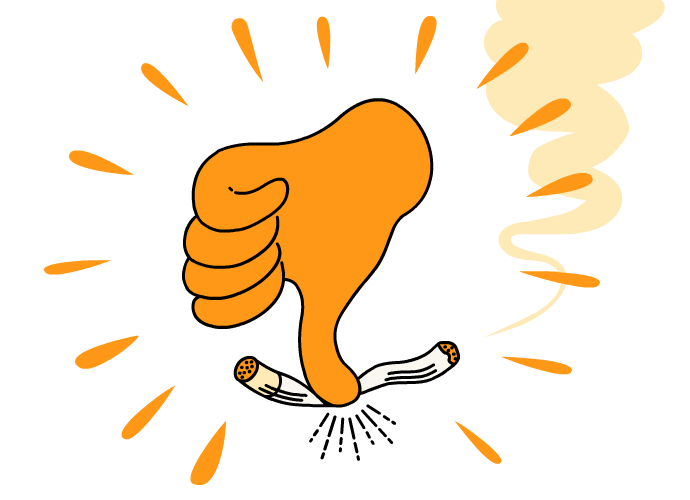
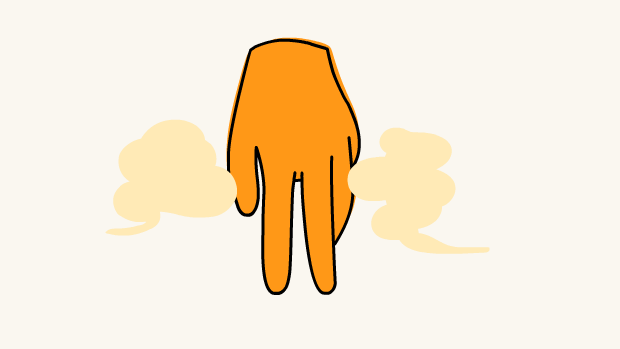

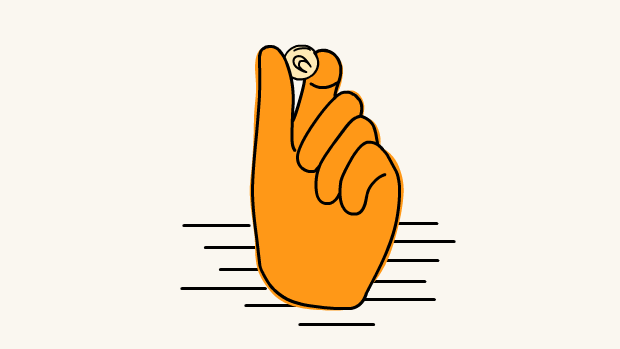

 Apohem
Apohem  Apotea
Apotea  Apotek hjärtat
Apotek hjärtat  Apoteket
Apoteket  Apoteksgruppen
Apoteksgruppen  Kronans apotek
Kronans apotek  Doz apotek
Doz apotek  Meds
Meds